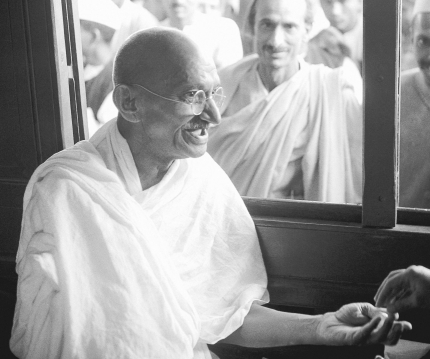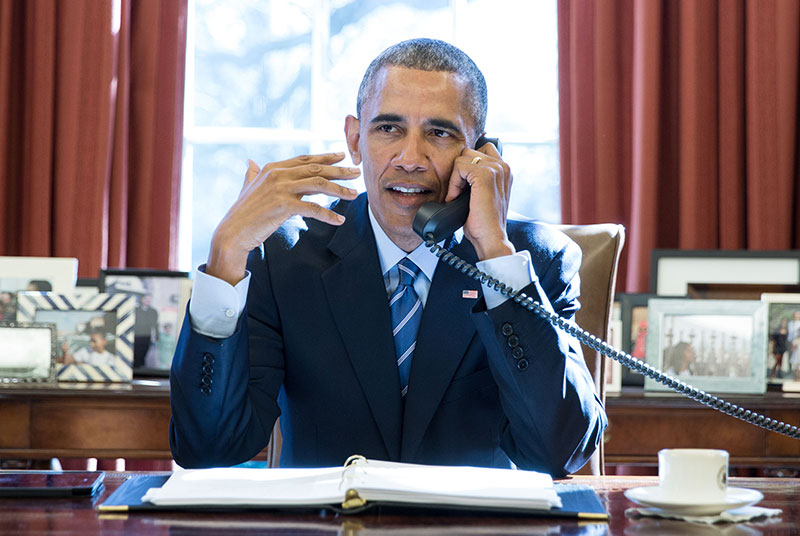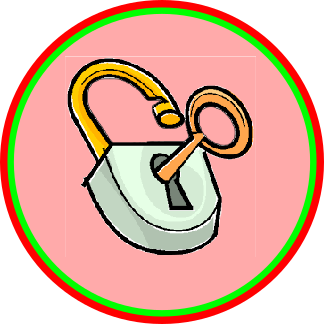Routines are habits that drive the actions in our lives. Harnessed the right way, the power of routines can be mind-boggling in helping you achieve almost anything you want in your life.
Table of Contents
The Story of Karthik (a.k.a ME)
Karthik wakes up pretty inspired every day. His mind is full of creative ideas and strategies to earn money online. He gets down to implementing them every day.
100% efforts, 0% success
However, six months into it, Karthik is yet to see a decent dollar trickle in. He knows for sure that the ideas are not wrong for friends and acquaintances of his have tasted success with the same methods.
One thing Karthik finds as he looks back and introspects is that he has been working extremely hard. Roughly 10-14 hours a day. He has been juggling around with multiple ideas but has not stuck with any of them.
What ails Karthik?
His problem has been his inability to dig his heels and focus on any particular idea. Most of his ideas never completely see the light of the day. His jumping around from one idea to another and inability to stick with one or two ideas till they bring him success seems to be the root cause of his problems.
We are no different from Karthik…
A lot of us have this very same problem. We do not adhere to a routine. Multitasking and juggling through whatever comes our way, we end up not focusing.
We are distracted by email, internet, social media. While these avenues do give us exposure to possibilities, we find ourselves unable to turn these possibilities into realities.
The power of routines
Think of something as simple as brushing your teeth. A perfect example of a routine. Most of us are used to brushing our teeth first thing after we swing our legs down from the bed and again before hitting the pillow at night.
It is a routine we have been taught by our parents right from childhood. What are the characteristics of this simple yet effective routine
- We do not think about it. It is routine.
- All of us do it every day. We never get bored
- We do not have to be conscious while doing it since we have gained expertise.
- It helps us maintain a confident self and healthy oral hygiene.
A routine is a process that has become a habit. It brings orderliness and discipline to your life. It helps people achieve big goals by completing small bits of it every day in the direction of the bigger goal.

Eliminates Decision Fatigue
One reason we end up ruining our day is that we do not have a good start. What is a good start? Generally, it is something that we can complete or achieve and brings us a sense of satisfaction.
Not deciding beforehand what you want to take up as your first task in the morning is BAD. Using precious morning time when you are in your best mood to ponder on what task to take up is ATROCIOUS.
‘Atrocious’ because doing it every day makes you tired. It ends up not only wasting precious morning time but also ends up playing to your MOOD. A particularly unpleasant but important task might get relegated to post lunch. A not so important task will end up hogging your entire morning.
What’s even worse it that you might spend half an hour on choosing your first task of the day that you lose your will to work productively in the morning.
Also, decision making becomes bad as the day progresses as is proved in the case of the famous research involving Israeli prisoners being granted parole by judges. Fewer prisoners were granted parole when presented before the judge later in the day compared to being presented first thing in the morning. This proves that the human mind opts for the easy path when making a decision becomes difficult.
Having a routine helps you by
- Eliminating the need to make decisions throughout the day.
- Preventing bad decisions from being made.
Having a fixed routine gives you the comfort of not having to worry about what to do first thing in the morning. It could be something like
- I will reply to the top 5 emails first thing in the morning
- Catch up with news headlines for the first 15 minutes
- Pick up and close all priority 1 tasks from my to-do list
- Eat the frog – Do the most unpleasant task first thing in the morning.
Helps you Eat the Whale Completely
Rome was not built in a day
A Blue Giant Whale cannot be eaten by you in one day.
No Great Big Goal was achieved in a day. It takes 3 P’s to achieve a goal
- Patience – Teaching your mind to wait for gratification
- Perseverance – Keep chipping away at a task for whatever time it takes
- Persistence – Doing a little bit of the task every day so that it all contributes to the BIG END GOAL.
Any BIG GOAL akin to eating a whale is not something you can achieve in a day. However, you need to have the right attitude to patiently and persistently persevere at it. The power of routines helps you do just this.
It breaks down a GARGANTUAN task into bite-sized pieces that can be dealt with every day.
Chopping down a whale into bite-sized morsels
Have you seen ants dealing with a big slice of cake? Thousands of ants jointly do the whole task – all by doing a small bit at a time.
- Gandhiji brought down the British empire by sticking to a routine. His first task in the morning was to ponder on what new non-violent step can I take that will lead to the goal of Independence.
- Edison did not invent the electric bulb at one go. However, he persisted and in his own admission states that he knew 10,000 bulb designs that did not work before he latched on to the one that did.
However, both these great men knew the power of ROUTINES. Do the one task everyday unflinchingly so that it leads you in the direction of your BIG FINAL GOAL.
Makes you an Expert
Malcolm Gladwell in his book ‘The Tipping Point’ mentions that one requires a minimum of 10,000 hours of practice to achieve expertise in a job.
- A badminton player needs roughly 10,000 hours of practice to become an expert badminton player.
- A budding gymnast needs about 10,000 odd hours of practice to execute the perfect double flip on the vaulting horse.
Famous Personalities who got the power of routines to work for them
Mahatma Gandhiji – Daily Routine

| Mahatma Gandhi’s Daily Routine in Sevagram | ||
| Morning | 4.00 a.m. | Get up from bed |
| 4.20 a.m. | Morning community prayers, writing, work or rest | |
| 7.00 a.m. | Breakfast, Morning walk (about 5 k.m.), Help in Ashram kitchen, Cleaning work, latrine cleaning, Utensils cleaning, Vegetable cutting, wheat grinding, etc. | |
| 8.30 a.m. | Visitors, writing or reading work | |
| 9.30 a.m. | Oil massage in the sunlight and tub-bath | |
| 11.00 a.m. | Lunch. | |
| Noon | 1.00 p.m. | Correspondence, visitors |
| 4.30 p.m. | Spinning | |
| Evening | 5.00 p.m. | Evening meals |
| 6.00 p.m. | Evening Prayers (Prayers speech) | |
| 6.30 p.m. | Evening walk for some time | |
| 9.00 p.m. | Go to bed | |
Source: https://www.gandhiashramsevagram.org/on-health/index.php
Barack Obama’s Daily Routine

| Barack Obama’s Morning Routine | |
| 6:45 AM | Works out, reads several newspapers, has breakfast with his family. |
| 8:50 AM | Begins work just before 9. |
| 10:00 PM | Works well into many evenings, but always stops to have dinner with his family each day. |
Benjamin Franklin’s Daily Routine

| Benjamin Franklin Daily Routine | |
| 4:00 AM | Wake, wash, eat breakfast, think about what he wants to accomplish for the day. |
| 8:00AM – 12:00PM | Work. |
| 12:00PM–1:00PM | Lunch while reading or looking over accounts. |
| 5:00PM | Conclude work, finish the day with dinner, cleaning, music and conversation, reflect on the day. |
| 10:00PM | Bed. |
Narendra Modi’s Daily Routine

| Narendra Modi – Daily Routine | |
| 5:00 AM | Wake up, Yoga Exercises for 30-40 minutes |
| 8:00 AM | Attends Calls of Party Workers, Friends |
| 9:00 AM | Checks Personal Websites and Social Media |
| 9:30 AM to 12:00 PM | Office Work |
| 12:00 PM | Lunch |
| 12:30 PM to 4:30 PM | Office Work |
| 4:30 PM | Snacks and Tea |
| 4:30 PM to 10:00 PM | Office Work |
| 10:00 PM | Watches TV and catches up on News |
| 12:00 AM | Important Calls and checks emails |
| 1:00 AM | Bed |
The science behind the power of routines

#1 Science says – Routines reduce the cognitive load
The human mind, though an amazing machine, can easily get overwhelmed with choices and decisions. The more the choice, the more confused it becomes.
Having too many choices often results in the human mind making the choice that is the easiest and more often than not, a bad one.
Consider that you want to eat something nice but are calorie conscious. The choices are
- Expensive Option – Go to a restaurant that prepares healthy food, is organic, vegan, etc. It can be costly though
- Time Consuming Option – Prepare a healthy meal yourself. This needs you to fetch the ingredients beforehand.
- Easy, Cheap and Quick Option – Eat some fast food like a burger or a pizza.
Consider, you making the decision in the absence of a routine. It is the fag end of the day and you are starving. You were so caught up with some unplanned work that you did not notice the time. What option will you choose from the 3 options above?
9 times out of 10, you will go with option 3. The absence of a routine prevented you from going for option 2 while cost forbade option 1. Hence cognitive load forced your brain to go with the easiest option.
If you had a routine, you would have planned on option 2 well in advance, stocked up the kitchen with the ingredients, let yourself time in your routine for cooking a healthy meal and enjoying it as part of the routine.
#2 Science says – Routines prevent the Downward Spiral Effect
At times, we do indulge ourselves in a bit of a self-reward – an occasional chocolate cake slice or the ice cream for dessert. This is perfectly fine as it gives the mind a much-needed break from the monotonous nature of routines.
However, it is the routines that keep you tethered. In the absence of routines, the following may happen
- Initial Transgression – Since I have already eaten a chocolate cake slice in the morning, I might as well pop in a few candies
- Guilt consciousness kicks in – Since I had candies and cake I need to take up walking tomorrow with seriousness.
- Lack of routine discipline – No routine, hence the planned morning walk never materializes.
- Downward Spiral – Since I am unable to get myself to walk, why worry? Let it be and enjoy a few more sweets.
#3 Science says – Routines help build newer routines
Having successfully built a routine, it is easier to stack another one over it without necessarily having to give up the first one.
Having a routine makes your orderly enough to make room for another one that complements the first. Two routines can make way for the third and so on.
Steps to harness the power of routines

- Prepare a list of tasks and prioritize them.
- Make a timetable to structure your tasks.
- Getting started is the secret to successfully completing a routine
- Focus on exactly one task at a time.
- Eliminate distractors like mobiles, TV, etc
- Fix a time limit for each routine.
- Minimize unnecessary decision making.
- Avoid tweaking the routine every now and then.
A 2012 book by Charles Duhigg titled ‘The Power of Habit’ provides some extremely insightful views into the power of routines. A Wired magazine review quotes as below

We are creatures of habit. We may like to think that our daily actions result from deliberation and willpower. But mostly they are the products of our unconscious habits.
https://www.wired.com/2012/04/the-power-of-habit/
The power of routines is out there for anybody to tap provided you need to excel at something. It is one of the simple things that differentiates successful people from the mediocre. A routine is something that makes achieving goals effortless and hassle-free. It makes people around you wonder how one can achieve, one success milestone after another, with such ease.
Try it out today and let me know routines that have created magic for you in the comments below. Do share the article with friends and relatives on facebook and twitter.


Very informative and motivating. Looking forward to including the routines in my life and also more valuable insights from your future writings.
Thanks Prathik,
I am looking forward to making brief videos to accompany each article. Any inputs from your end will be welcome.
Vijay